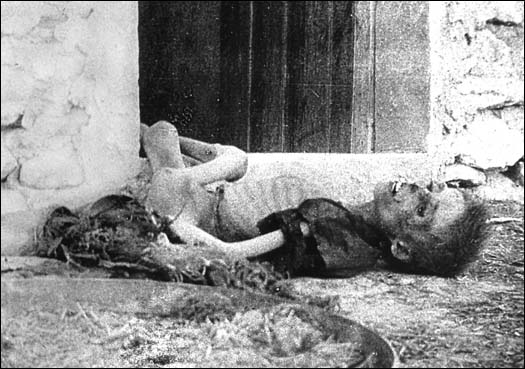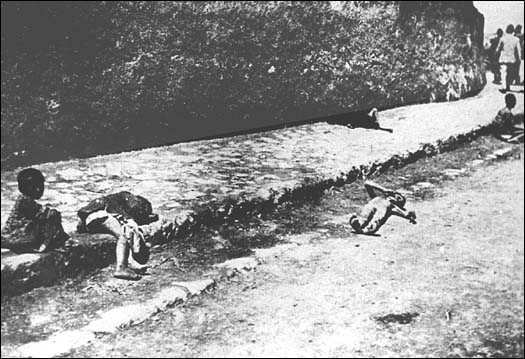A Turkish group uniting hundreds of businesses and organizations demanded Tuesday that Arnold Schwarzenegger's movies are banned from Turkish television to protest the California governor's use of the term genocide to describe the massacre of Armenians by Turks at the time of World War I.
Schwarzenegger, a former actor best known for his role in "The Terminator," declared April 24 a "Day of Remembrance of the Armenian Genocide." California has one of the largest populations of diaspora Armenians.
An umbrella organization grouping some 300 Ankara-based associations, unions and businesses and led by the Ankara Chamber of Commerce, said it launched a petition to try and get the governor's films banned in Turkey.
I know that my anonymous moniker is similar sounding to Mustafa Kemal, and there was much admirable about him. But there was also much that was not, and while there is little evidence that Ataturk perpetuated the Armenian Genocide, there is no dispute he played an active role in denying it occurred and in trying to cover up the evidence and bully those who claimed otherwise.
Ironically, as it is one of germanic (in this case Austrian) descent getting in trouble for recognizing it was a genocide, it was also a german, Armin T. Wegner, who provided concrete proof of the genocide of the Armenians during the First World War.
Wegner, was the first, of what would become known as "the good germans" who stood up to Hitler:
Wegner used a simple camera to photography hundreds of images of the Armenian Genocide, including photgraphs of deportation camps, hangings and mass graves. His photographs served as visible proof of the first systematic genocide of the Twentieth Century.
In December, 1915, Wenger's activities were discovered. At the request of the Ottoman rulers, Wegner was arrested by German authorities and sent to Germany.
Wegner was able to save the photographic plates by hiding them in his uniform. Hidden in his belt were his photographic plates with images of the Armenian Genocide.
The tragedy of the Armenian people to which he had been eyewitness in Ottoman Turkey haunted him for the rest of his life.
In preparation for the 1919 peace conference, Wegner wrote an open letter to the United States President Woodrow Wilson. In his letter, Wegner protested the atrocities perpetrated by the Ottoman army against the Armenian people, and he appealed for the creation of an independent Armenian state.
In the 1920's, Wegner reached the height of his success as a writer. Wegner became a celebrity with his Russian book, Five Fingers Over You, which foresaw the advent of Stalinism.
In the 1930's, Wegner's was one of the earliest voices to protest Hitler's treatment of the Jews in Germany. Wegner was the only famous writer in Nazi Germany ever to publicly protest the persecution of the Jews.
In 1933, Wegner published an open letter to Hitler protesting the state–organized boycott of the Jews. He was immediately arrested by the Gestapo and imprisoned. Wegner was incarcerated in seven Nazi concentration camps and prisons before he successfully escaped and fled to Italy.
A quick summary of the genocide is this:
On April 24, 1915, the Young Turk government arrested hundreds of Armenian intellectuals, most of whom were quickly executed. This was quickly followed by orders for the relocation of hundreds of thousands, possibly over a million, Armenians from across all of Anatolia (except parts of the western coast) to Mesopotamia and what is today Syria, many to the Der El Zor Desert. The government did not provide any facilities to care for the Armenians during their deportation, nor when they arrived. Rather, the Ottoman troops escorting the Armenians as a matter of course not only allowed others to rob, kill, and rape the Armenians, but often participated in this activity themselves. The forseeable consequence was a significant number of fatalities. Most Western sources maintain that at least one million deaths took place.
Here are some of Wegner's photographs:



Because the genocide was not nearly as well documented as the subsequent Nazi Genocide of the Jews and other ethnic groups twenty plus years later, this clamping up of history has had some success:
Though soon after the Armenian Genocide, the world was well aware of the "extermination of the Armenians", which was openly discussed by Turkish government officials, and trials of Ottoman officials were held in regard to the events, after a period of quiet, a new policy of silencing and denial began. Eventually, a policy that is considered by many historians as official state denial emerged. Mention of the Armenian Genocide almost anywhere in the world was met with rebukes from Turkish Ambassadors, while mention of it in Turkey itself led to jail terms or worse on many occasions - ironically often prosecuted under a law against inciting ethnic hatred. Turkey began to spend large amounts of money on lobbying firms in Washington D.C. to counter genocide allegations, and improve its image. It also began to spend large amounts of money on endowed chairs of Turkish or Ottoman history in different U.S. universities which had conditions that the professors who were hired must be on "friendly" terms with Turkey. Some of their efforts to establish such chairs were met with student and public resistance and not all were eventually successful in being established.
The campaign of what is considered as denial was met with mixed success. Some governments, notably Turkish allies the U.S. and Israel will not officially use the word genocide to describe these events, though some government officials have used it personally.
So, on this issue, I defend Schwarzenegger. The United States has purposely taken the policy of not speaking the truth on the issue (bipartisanly). Nearly a century, on, Turkey cannot start healing until it comes to grips with its past, it would be good for them as well.
 Rising Hegemon
Rising Hegemon
No comments:
Post a Comment